Israel claims victory in the '12-day war' with Iran
Donald Trump may have announced a ceasefire in the 12-day war between Israel and Iran, but what comes next depends on what happens internally in Iran

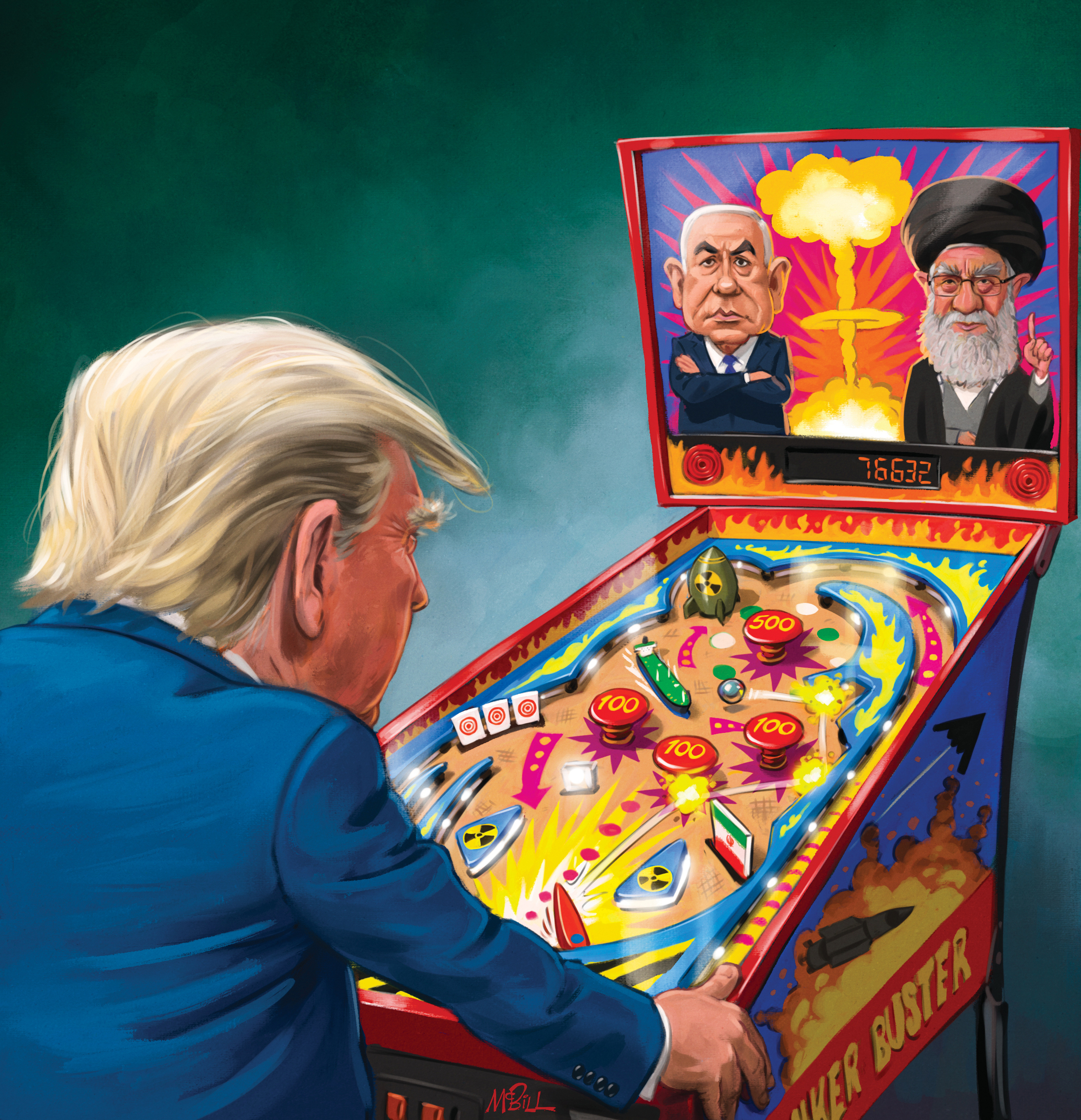
Get the latest financial news, insights and expert analysis from our award-winning MoneyWeek team, to help you understand what really matters when it comes to your finances.
You are now subscribed
Your newsletter sign-up was successful
Want to add more newsletters?

Twice daily
MoneyWeek
Get the latest financial news, insights and expert analysis from our award-winning MoneyWeek team, to help you understand what really matters when it comes to your finances.

Four times a week
Look After My Bills
Sign up to our free money-saving newsletter, filled with the latest news and expert advice to help you find the best tips and deals for managing your bills. Start saving today!
“He came, he bombed, he ended the war” – or so Donald Trump wants the world to believe, says The Economist. Two days after US bombers struck Iranian nuclear facilities, Trump announced a ceasefire in the war between Israel and Iran, calling it the “12-Day War”. Since Israel – which has strengthened its position in recent years by destroying Iran’s regional proxies – launched its surprise attack on Iran on 13 June, the country had managed to destroy most of Iran’s air defences, kill top generals and nuclear scientists, and begun to destroy its nuclear programme.
On 22 June, America “swept in” with “Operation Midnight Hammer”, striking key nuclear facilities at Fordow, Natanz and Isfahan. Although Trump’s deal initially faltered, a truce now appears to be holding, with each side portraying it as a victory. The conflict might be “winding down”, but the ceasefire is “more likely to mark a pause in hostilities” than the “definitive new start” Trump wants, says Gideon Rachman in the Financial Times. The conflict will only confirm Iran’s view that Israel and the US are “very dangerous enemies” and that it needs to rebuild both its “military strength” and legitimacy.
The Israelis may have “demonstrated extraordinary military and intelligence capabilities”, but they still needed America to “finish the job” – and even if they have established their regional hegemony for now, “for a country of ten million people, in a region of several hundred million, it will always remain a tenuous achievement”.
MoneyWeek
Subscribe to MoneyWeek today and get your first six magazine issues absolutely FREE

Sign up to Money Morning
Don't miss the latest investment and personal finances news, market analysis, plus money-saving tips with our free twice-daily newsletter
Don't miss the latest investment and personal finances news, market analysis, plus money-saving tips with our free twice-daily newsletter
“Going to war” against the US poses “formidable risks” for Iran’s rulers, says Farnaz Fassihi in The New York Times. Conservative hardliners in Iran have called for the country to leave the Nuclear Non-Proliferation Treaty and close the Strait of Hormuz, through which around 20% of the world’s energy supply travels daily – a “very blunt way” to strike back, given America’s energy independence, says Ambrose Evans-Pritchard in The Telegraph. Other Iranian officials and prominent pundits cautioned restraint. The supreme leader, 86-year-old Ayatollah Ali Khamenei, has made no official statement and remains sheltered in a bunker, but his top foreign-policy adviser Ali Akbar Velayati took a tough line on social media, warning that “the Islamic Republic of Iran will have the last word”.
The war has already “sped a power shift” to the Iranian regime’s military arm, the Islamic Revolutionary Guard Corps (IRGC), says The Economist. If Khamenei “returns from his bunker, he may struggle to reassert his authority”. The clerics are widely loathed in Iran, and many Iranians would “rejoice in a new social contract that reduces the regime’s religiosity”. The war has sparked a “nationalist surge” that has “narrowed the gap between ruler and ruled” and may have emboldened the generals. As a result, the regime may now seek to rebuild Iran’s nuclear programme while seeking deeper cooperation with China and Russia, says Ali Mamouri in The Conversation. Even if a small portion of Iran’s estimated nuclear material survived the attack (and there has been no sign of radioactive leakage), Iran “still has enough fissile material for several nuclear bombs”, notes Philip Gordon in the Financial Times.
A new era of peace?
In the short term, Iran may “prefer to lick its wounds”, says The Economist. As for Israel, Benjamin Netanyahu is unlikely to be willing to defy Trump, who covets a Nobel peace prize and won’t want the war to “drag on”. But it remains to be seen whether Iran’s “new military men” will “break the cycle of paranoia and insecurity” that has left Iran and its 90 million people in a “ruinous state”. That “new era of peace and prosperity” championed by Trump “may prove elusive yet”.
This article was first published in MoneyWeek's magazine. Enjoy exclusive early access to news, opinion and analysis from our team of financial experts with a MoneyWeek subscription.
Get the latest financial news, insights and expert analysis from our award-winning MoneyWeek team, to help you understand what really matters when it comes to your finances.

Emily has worked as a journalist for more than thirty years and was formerly Assistant Editor of MoneyWeek, which she helped launch in 2000. Prior to this, she was Deputy Features Editor of The Times and a Commissioning Editor for The Independent on Sunday and The Daily Telegraph. She has written for most of the national newspapers including The Times, the Daily and Sunday Telegraph, The Evening Standard and The Daily Mail, She interviewed celebrities weekly for The Sunday Telegraph and wrote a regular column for The Evening Standard. As Political Editor of MoneyWeek, Emily has covered subjects from Brexit to the Gaza war.
Aside from her writing, Emily trained as Nutritional Therapist following her son's diagnosis with Type 1 diabetes in 2011 and now works as a practitioner for Nature Doc, offering one-to-one consultations and running workshops in Oxfordshire.
-
 Should you buy an active ETF?
Should you buy an active ETF?ETFs are often mischaracterised as passive products, but they can be a convenient way to add active management to your portfolio
-
 Power up your pension before 5 April – easy ways to save before the tax year end
Power up your pension before 5 April – easy ways to save before the tax year endWith the end of the tax year looming, pension savers currently have a window to review and maximise what’s going into their retirement funds – we look at how
-
 How Canada's Mark Carney is taking on Donald Trump
How Canada's Mark Carney is taking on Donald TrumpCanada has been in Donald Trump’s crosshairs ever since he took power and, under PM Mark Carney, is seeking strategies to cope and thrive. How’s he doing?
-
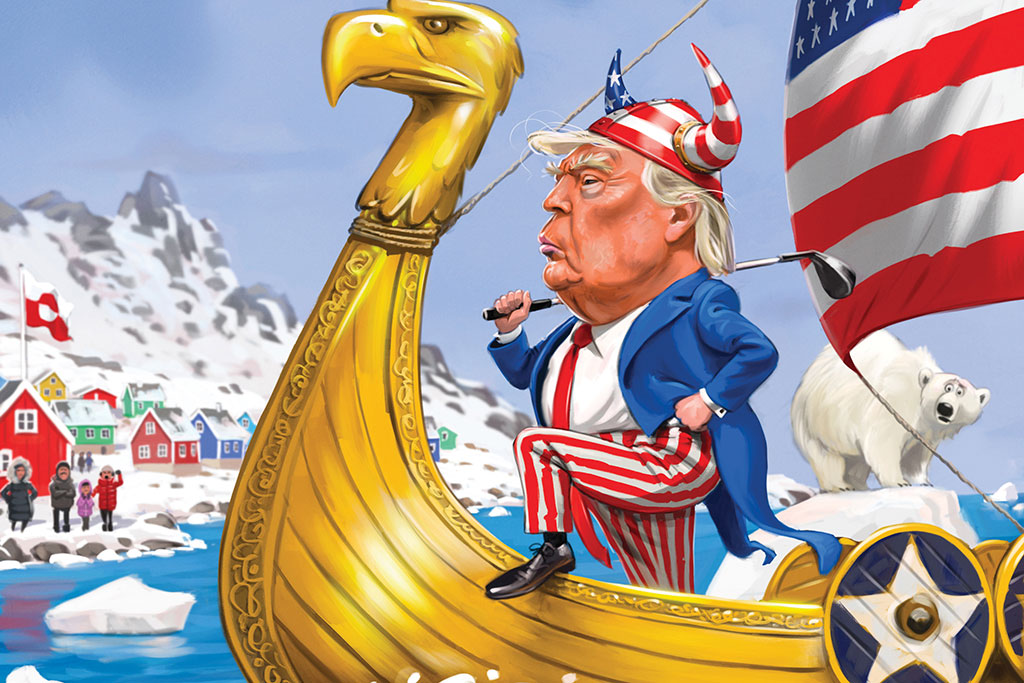 Why does Trump want Greenland?
Why does Trump want Greenland?The US wants to annex Greenland as it increasingly sees the world in terms of 19th-century Great Power politics and wants to secure crucial national interests
-
 'Investors should brace for Trump’s great inflation'
'Investors should brace for Trump’s great inflation'Opinion Donald Trump's actions against Federal Reserve chair Jerome Powell will likely stoke rising prices. Investors should prepare for the worst, says Matthew Lynn
-
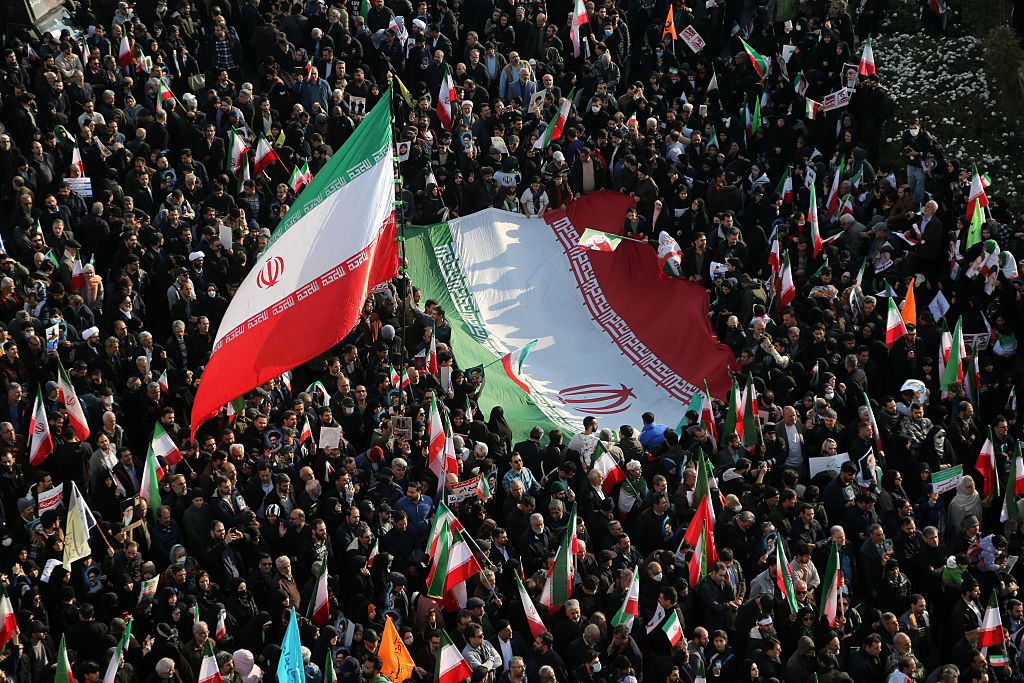 The state of Iran’s collapsing economy – and why people are protesting
The state of Iran’s collapsing economy – and why people are protestingIran has long been mired in an economic crisis that is part of a wider systemic failure. Do the protests show a way out?
-
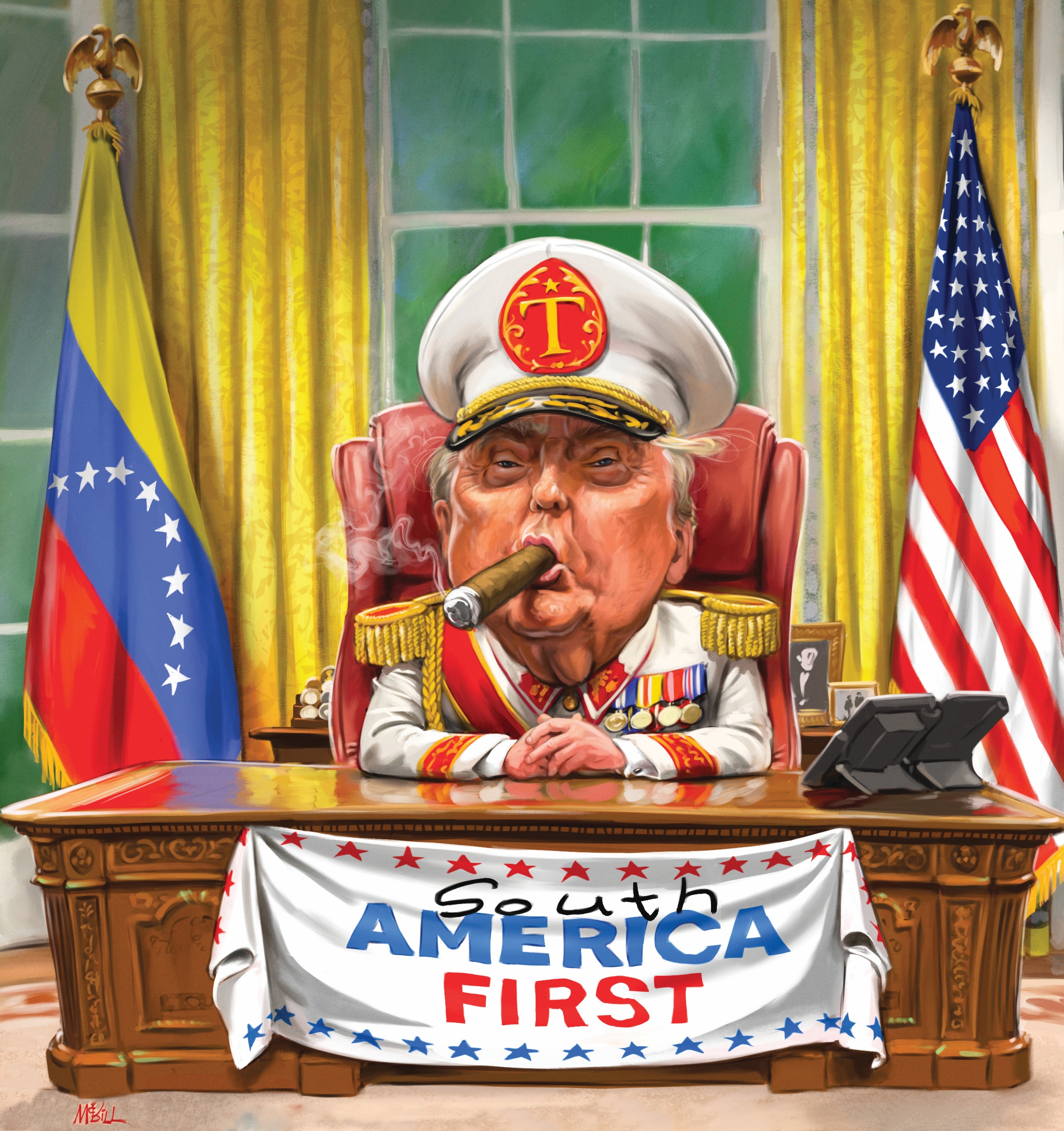 Why does Donald Trump want Venezuela's oil?
Why does Donald Trump want Venezuela's oil?The US has seized control of Venezuelan oil. Why and to what end?
-
 Market predictions for 2026: Will Dubai introduce an income tax?
Market predictions for 2026: Will Dubai introduce an income tax?Opinion My 2026 predictions, from a supermarket merger to Dubai introducing an income tax and Britain’s journey back to the 1970s
-
 The war dividend – how to invest in defence stocks as the world arms up
The war dividend – how to invest in defence stocks as the world arms upWestern governments are back on a war footing. Investors should be prepared, too, says Jamie Ward
-
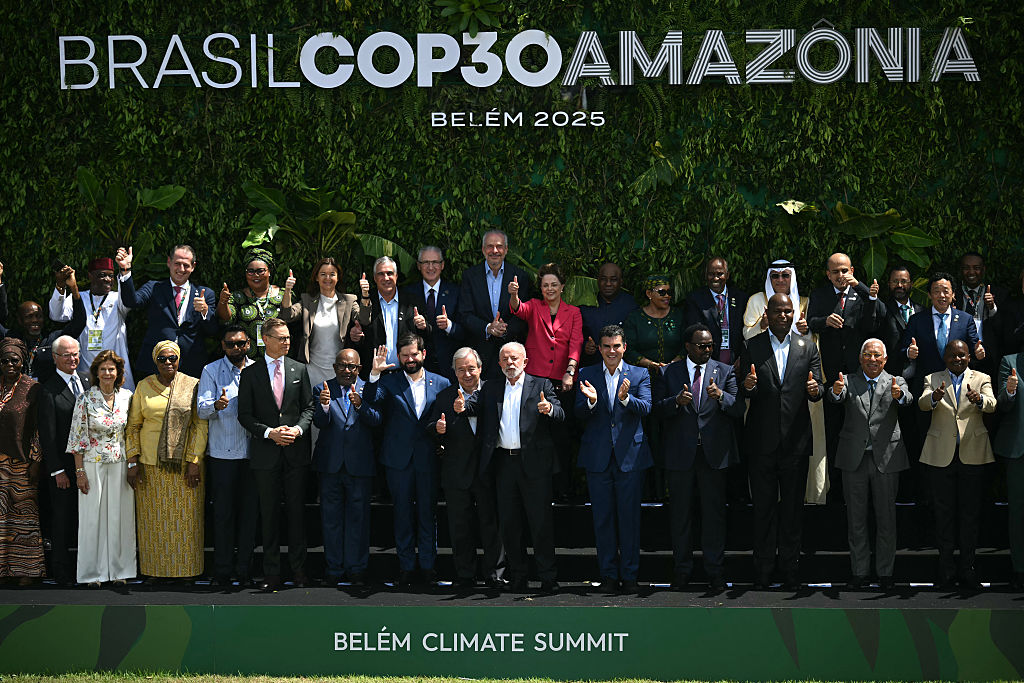 Did COP30 achieve anything to tackle climate change?
Did COP30 achieve anything to tackle climate change?The COP30 summit was a failure. But the world is going green regardless, says Simon Wilson